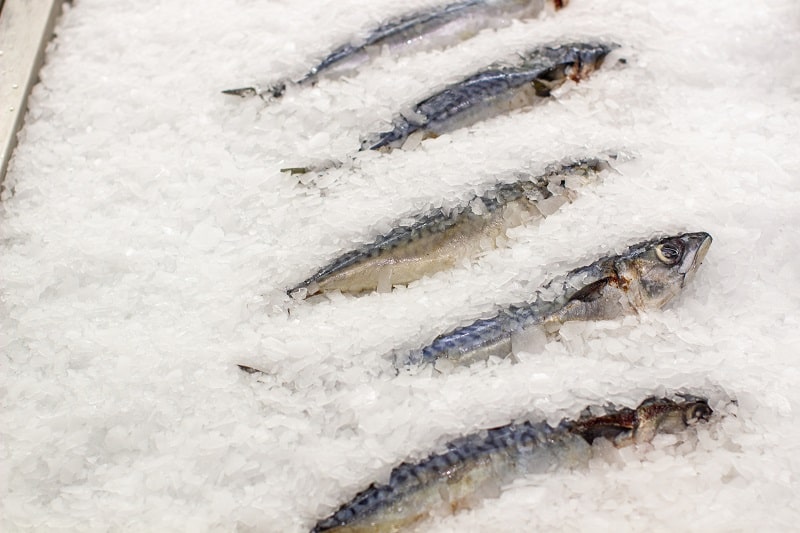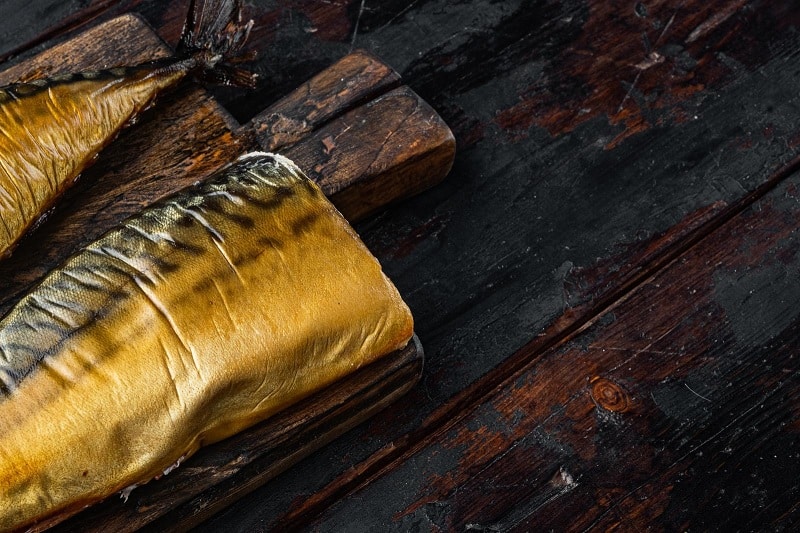Smoked mackerel is the perfect rich, oily fish choice for any meal of the day. But unless you’re a professional in the culinary world, it can be a minefield figuring out which foods can and cannot be frozen.
Knowing whether or not you should freeze something is especially when it comes to meat, fish and dairy, and foods that have been treated in a flavour-enhancing method such as smoking or curing. So, the question is: can you freeze smoked mackerel?
Freezing Smoked Mackerel – Yes or No?
The good news for meal planners and preppers alike is that you can absolutely freeze smoked mackerel without few ramifications on its taste or texture.
As with all fish, if you’re planning on freezing it, it is important to pop it in the freezer on the day you purchase (or catch!) it, and take it out within roughly two-to-three months.
For fish to be fully defrosted, it is best to remove it from the freezer the night before you plan on eating it, and leave it in the fridge to defrost.
When freezing, make sure your mackerel is thoroughly covered in an airtight freezer bag or vacuum pack, or anything to prevent freezer burn.
Can You Freeze Vacuum-Packed Smoked Mackerel?
As with smoked salmon, and any other store-bought meat, fish, or poultry, it is fine to freeze it in the packaging it comes in.
Most store-bought fish will come in a tightly-sealed vacuum-packed plastic bag (which is sealed using a vacuum machine that tightly caps the bag with hot glue, while extracting air from inside).
Vacuum packs are great for freezing, as they will protect the fish from freezer burn, as well as ensuring no air bubbles get trapped within the packaging.
If you’re not planning on eating the mackerel straight away, it is important to freeze it promptly upon purchasing it to keep it as fresh as possible.
Can You Freeze Unwrapped Smoked Mackerel?
If you’ve bought a pack of smoked mackerel and opened it, or have gone fishing and smoked it at home with a smoking machine, it is still fine to freeze.
But it is important that it is wrapped as tightly as possible in a freezer bag (or something similar), so that the fish isn’t exposed to any pockets of air.
It’s also wise to freeze it as soon as possible (as opposed to allowing it to sit in the fridge for a few days) to maximise its freshness.
As fish is considered a ‘high-risk’ food in terms of salmonella and general food poisoning, it’s important to be mindful of treating and wrapping it well to ensure it is fully fresh and safe when you come to eat it.
Does Smoked Mackerel Need to be Frozen Separately?
It’s fine to freeze smoked mackerel individually, or in groups of two or three (or more).
It’s advised, however, to freeze the fish separately, as the freezing process will cause them to stick together, which can make it tricky if you only wish to defrost a small amount.
Defrosted fish should be eaten within three days of being defrosted, and should NEVER be re-frozen.

How to Defrost Smoked Mackerel
With smoked mackerel (and any other fish that’s been frozen), the safest way to defrost it is to remove it from the freezer the night before you wish to eat it and let it defrost slowly in the fridge.
You can also defrost smoked mackerel in the microwave, if need be (being mindful not to overcook it).
How to Defrost Smoked Mackerel in the Microwave
If you decide to use the mic-method, be sure to follow these instructions:
- Use a microwave-safe dish or bowl (with a lid) to place the fish in.
- Always use the “defrost” option.
- Microwave for one-to-two minutes, pausing to flip and rotate the mackerel at the halfway point. This will ensure it’s evenly defrosted, and will lessen the chance of hotspots.
- Check to make sure there aren’t any hotspots before going on to cook the fish.
Conclusion
It is absolutely fine to freeze smoked mackerel, providing it has been freshly bought/caught, and is wrapped appropriately, ensuring no air pockets.
Avoid freezing smoked mackerel for any longer than three months, and for the best (and safest) results, defrost the fish the night before in your fridge.

Clara is a freelance writer and former chef. Though she may have hung up her apron, her love of food and cooking is still going strong! When she’s not whipping up a verbal storm, she’ll be in her kitchen sipping wine and whipping up a culinary storm.







